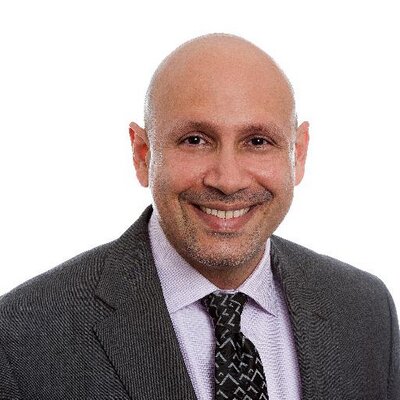Winning the trust of stakeholders is a leader’s greatest battle. A business leader establishes a common purpose, steers the organisation towards shared goals by building trust with stakeholders.
The uncertainty and enormous stress wreaked upon business organisations by the Black Swan event, COVID-19 pandemic, makes retaining trust of stakeholders an even more urgent and important imperative for leaders.
The economy, market shares, bottom lines, competitors, regulators, communities; a business leader has too many priorities to worry about, why should they care about building trust?
Trust is a profound force that enhances credibility, builds loyalty, and makes communication effective. It plays a decisive role during times of change. Trust lends the benefit of doubt in tough situations where one wants to be heard, understood and believed.
Business leaders are followed closely by its employees and various stakeholders. Stakeholders’ trust in doing business with an organisation depends in part on what its leader says and does.
This trust is severely tested in periods of high uncertainty, changes due to mergers and acquisition, buyouts, and ownership changes. Organisations find it difficult to engage, motivate and retain their talent if their leadership’s messages are not believed.
In his book ‘The Trust Edge’ David Horsager showcases how a trusted leader gains faster results, builds deeper relationships, and delivers a stronger bottom line.
How does a Leader Build Trust? A successful leader understands the value of building and sustaining trust. They know that trust has to be earned and retained. A leader cannot take trust for granted. Loss of trust among stakeholders can spell doom for an organisation.
Leaders who win trust are advocates of communication and are committed communicators themselves.
John Thompson, former CEO of Symantec (my former big boss) and present Microsoft Chairman of the Board, a master-class communicator, once addressing a leadership program (I had the privilege to hear these lines) said, “Leaders should be communicators, and one of their key responsibilities is to communicate, communicate and then communicate some more.”
Communication is intrinsic to building trust. Communication serves to create an environment of trust around leaders that enables them to lead effectively, engage with constituents, and ultimately deliver results.
Trust and Communication. Leaders of high-performing, well-respected companies are known for their “open communications.” They create a culture of trust by sharing information openly, quickly and freely with employees and stakeholders. This kind of communication culture builds relationships and enables their organisations to thrive.
Effective leaders encourage and initiate informal and formal communication programs within their organisations. Importantly, these leaders regularly evaluate their own performance as communicators.
Jim Collins in his seminal work ‘Good to Great’ outlines communications as one of the three principal responsibilities of the CEO. He encapsulates that a very significant part of a CEO’s role is to communicate with stakeholders especially employees and customers. They want a CEO to communicate the strategic issues-the ‘big picture’ scenario.
Make Trust Happen. Communication is at the heart of building trust.
Building trust involves managing communications that encourage dialogue and discussions. Channels are as important as the message itself. Interactive channels should be used to deliver messages and receive feedback freely and openly.
“Trust and commitment do not just happen; they are forged and maintained through effective communication,” write Rachid Zeffane, Syed Tipu, and James C. Ryan in the International Journal of Business and Management article Communication, Commitment, and Trust: Exploring the Triad.
Good leaders walk the talk. They seize every opportunity to communicate directly and deliver the “say-do” messages.
At the heart of Symantec’s employee communication program were these two initiatives I recall- Leadership Dialogues and Manager Central – aimed at enabling leaders and managers around the world to communicate effectively.
Leaders are storytellers. Not all leaders are born storytellers but can become one with concerted effort. Stories are remembered because they’re emotional and powerful. Powerful stories are an important way of ensuring that everyone understands the context in which we work and how the corporate priorities relate to their own team’s objectives.
Track Progress. Measuring progress should be integral to your communications efforts. The gold standard for evaluating communications is the communication audit/survey.
Employee engagement surveys (generally undertaken by HR) also provide a pulse as to what degree, employees perceive senior managers as trustworthy. These surveys should incorporate direct and unequivocal questions related to trust.
This multi-channel feedback system will provide leadership with a full picture of the quality of communications, effectiveness of information, message delivery, and the depth of trust in the messages from senior management.
The Invaluable value of Trust. As a professional and personal value, trust is invaluable. Trust is the firm belief that the other person has your best interests at heart.
So why does it take so much effort to get employees and other stakeholders to accept that their leadership does have their best interests in mind? Or that they should believe what their leaders have to say?
The answer lies in actions. Action always speak louder than words. Any perceived discord between words and actions creates distrust among stakeholders.
Leaders must work to build trust; it must be earned over a period of time by listening, talking, asking questions and walking the talk.
The views and opinions published here belong to the author and do not necessarily reflect the views and opinions of the publisher.



Be the first to comment on "You Can’t Be A Leader Without Trust – Communications is at its Heart"